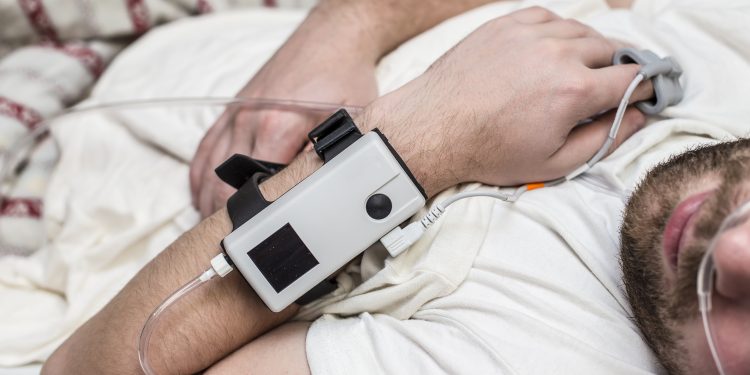What a lot of patients and even practitioners don’t realize is how common obstructive sleep apnea or sleep disorder breathing is in patients with any sort of cardiovascular disease. The two problems are intertwined at multiple levels. That is the reason that when you visit a doctor for heart-related issues, they will ask you questions about sleepiness, snoring, morning headaches, and everything that is associated with obstructive sleep apnea.
The standard symptoms that doctors often look for are snoring, tiredness, observed apnea, high blood pressure as far as risk factors, elevated body mass index (greater than 35), age greater than 50, neck circumference (enlarged in men greater than 17 inches, in women greater than 16 inches) and male gender. Those are all the components of a commons screening instrument. If there are three or more factors that are positive, then folks are considered to be a high pre-test probability for obstructive sleep apnea.
It is also recognized that yere are limitations to how the standard screening approaches work in the cardiac population. So, patients with underlying cardiovascular disease, have different symptom profiles. It is possible that we are only scratching the surface and maybe even missing by using the standard approaches. We need more research in that area to better understand what factors we should specifically be looking for in the screening process for those with underlying cardiac disease.
Not everybody complains of profound symptoms of obstructive sleep apnea. There are people where day-to-day life is so adversely affected by their sleepiness that when they are finally diagnosed and treated, it can be a life-changing event for them. There are also people who qualify for screening but may not tell their doctor a lot about excessive sleepiness, but they have a lot of underlying cardiovascular disease that is associated with the presence of obstructive sleep apnea.
Doctors treat sleep apnea mainly for the sleepiness effects of mild sleep apnea because they don’t want you to sleep. They want you to have a decent quality of life. But when you start getting into that moderate to severe sleep apnea and you stop breathing, then they start worrying about the stress on the heart.
When you fall asleep and your airway becomes obstructed by sleep apnea, your tongue falls back in the back of your throat, then your oxygen goes down. When your oxygen goes down, your body says, ’oh I’m not getting enough oxygen, increase that heart rate, and then it jacks up your heart rate. After your body says,’ no it’s not working, wake him up. So, when you wake up, you may totally wake up or you may come below the surface, but in either case, you’re waking up enough that you move your head a little bit, open up the airway and go back down to sleep. So, depending on how severe your sleep apnea is, determines how many times this happens through the night.
In the mid-category and early moderate category, the doctors are more concerned about the sleepiness part but when you get further up, they are worried about the effects on the heart rate. Try to think of it as a bodybuilder. Bodybuilder works out a lot, and their muscles get big, but sometimes they have difficulty moving because ethos muscles are so big. That’s what can happen to your heart.
Your heart can overwork and become enlarged. once it becomes enlarged, there is nothing the doctors can do to make it small again. So, all they do is deal with the symptoms of it being large. That would be things like congestive heart failure, and pulmonary hypertension, both of which are things can cause you to become short of breath. They have to treat the shortness of breath, but they cannot make that heart small again.
There has been some new research and there is the suggestion that there is an association between these diseases and sleep apnea, but there was one study that was not able to prove it. But now we all know that it outs work on the heart if it has to keep being triggered every time your oxygen goes low. Also, a particularly important thing is that we all know that, that constant triggering, for example, you stop breathing 40 times in an hour, then 40 times an hour your body is saying to the heart, ‘go fast, go fast. That can cause problems over time. It can be like a light switch, making the heart short and go into an irregular heartbeat.











Discussion about this post